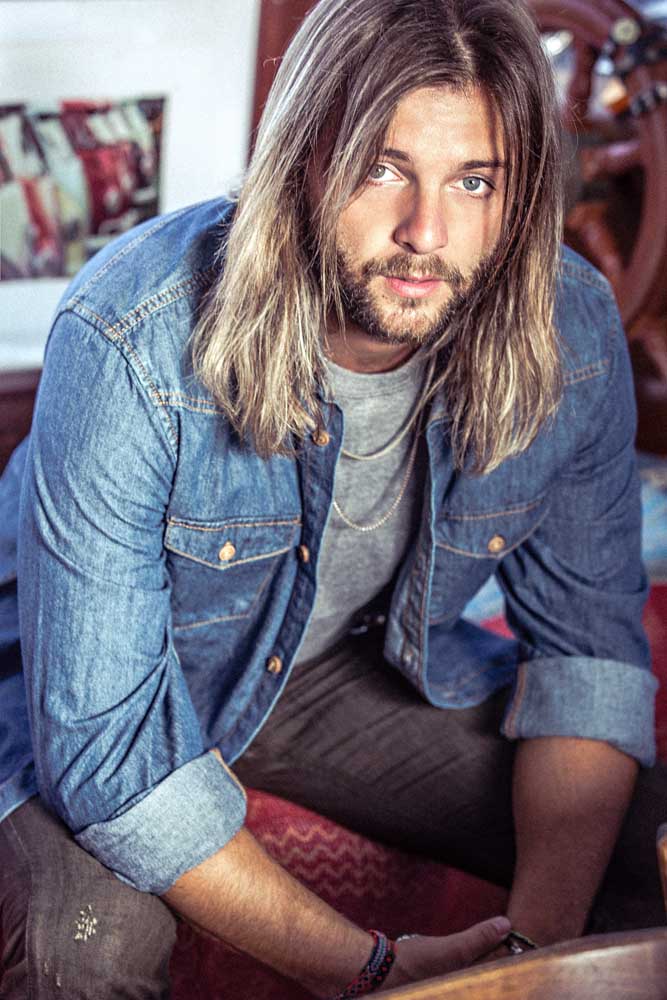Scholarship fund will honor nordic ski coach David Kurtz
Published 12:00 am Saturday, April 28, 2018

- white background
While David Kurtz, a well-known local nordic ski coach, has been gone for several months, his passion and generosity live on in loved ones’ memories — and by way of a new scholarship fund for youth skiers.
Bend Endurance Academy, in conjunction with the Kurtz family, have established the Kurtz Nordic Scholarship Fund. It’s geared toward in-need youth nordic skiers who are “interested in making it to that next step from development team to the competition team or just wanting to be at practice more, wanting to be more a part of the team,” said Sandy Visnack, Bend Endurance Academy executive director.
Trending
The academy has gathered $2,000 toward the Kurtz Fund. The Kurtz family will also be making an endowment. Bend Endurance Academy is still deciding how the scholarship funds will be dispersed.
Kurtz was 18 when his parents enrolled him part time at Mt. Bachelor Sports Education Foundation’s nordic program in 2000. He was coached by MBSEF’s then-director Ben Husaby, a former Olympic skier who later founded Bend Endurance Academy. Husaby saw great potential and commitment in Kurtz, Visnack said. He found a way to provide Kurtz with tuition assistance to further develop his skiing on the competition team.
“(The tuition aid) helped David blossom into the skier and person he became,” Visnack said. “He had found his place.”
Outdoor life
Since Kurtz, 35, died by suicide on Dec. 31, 2017, Visnack said “numbness” best sums up what the academy staff and their young athletes have felt as they sift through losing such a passionate and generous person.
“This year has been tough in losing him,” Visnack said. “For me being new and discovering how much he touched people’s lives, it’s pretty incredible. It really is. These kids form pretty strong bonds with our coaches.”
Trending
Kurtz’s mother, Susan Whitney-Kurtz, 71, spoke on the phone while attending a music retreat in the Columbia River Gorge. After several months of mourning, she’s ready to share some memories of her son, whom many referred to by his last name. Sometimes his mother does the same.
“Kurtz was always involved with and comforting to his skiers, especially after races when they were worn out,” she said. “Once, after a race, a little skier threw herself into a snowbank. David went to comfort her. She looked up long enough to say, ‘It’s OK, Kurtz. Sometimes I just need to cry.’ Then she threw herself back into the snowbank and continued sobbing. He stood there with his hands folded, glancing around. Everyone was coming by glaring at him, like, ‘You terrible father! Pick up your daughter,’” Susan said with a chuckle. When Kurtz told his mom stories like these, he would struggle to keep from laughing. “People were walking by trying to shame him. He thought it was hilarious once he realized he was being mistaken for the father.”
Whitney-Kurtz and David’s father, Charles Kurtz, raised their family in Bend. They nurtured a love of non-motorized sports, particularly nordic skiing and cycling in David and his older sister, Ellen Kurtz, now 38 and living in Portland.
“David was always on the back of a bike or (being pulled in a snow) sled since birth,” Whitney-Kurtz said. “He grew up outdoors.”
She remembered taking David on nordic ski outings at Dutchman Flats when he was about 3 years old.
“He was pretending to be a racer, striding across (the snow). He saw me looking at him, and he got all embarrassed,” Whitney-Kurtz said. She often initiated their ski outings with a playful rallying cry: “Are you ready for a ride yet? OK, sure!”
Kurtz wasn’t a little boy for long. As an adult he would cut an imposing figure at 6’4”, yet since the age of 6, he used his stature to intervene on behalf of someone being bullied, whether out skiing, at a pub with teammates or on a playground, his mother said.
“He was bigger and he was gentle,” Whitney-Kurtz said. “He would go stand behind someone who was being bullied and give them support, even if he didn’t know them. The guy would back down and leave. If absolutely necessary, David would begin rolling up his sleeves with great care and concentration. He never had to finish the second sleeve.”
As a teenage Bend Endurance Academy racer, Kurtz excelled. He won many races, often at the state level. His success earned him a partial-scholarship to Western State Colorado University where he enrolled in 2003 after studying at Central Oregon Community College. He majored in history but didn’t complete his degree. He returned to Bend, joining Bend Endurance Academy’s staff in 2009. He also worked seasonally at Lay It Out Events, an event company.
‘One heck of a motor’
Stu Smith-Blockley, a Webskis ski technician, raced and coached a combined 15 years with Kurtz. The two were both MBSEF club members; when Smith-Blockley was in eighth grade, he remembered Kurtz, a senior, as the cool upperclassman who was nonetheless inclusive and egoless.
“He was a big part of me coming up racing and getting better. It was pretty awesome to have him as a role model,” he said. “We went on ski trips together and raced together.”
Smith-Blockley recalled hearing about how Kurtz won the 1999-2000 state championship 5-kilometer classic ski race by about two minutes.
“If you looked at him, you wouldn’t know he was a nordic skier. The dude could leg-press 1,000 pounds and run a sub-6-minute mile. He had one heck of a motor and was super strong. He had some races where it was pretty incredible what he did to the competition.”
If he was proud of himself after such races, Kurtz never let on.
“He was one of the most humble people,” Smith-Blockley said. “That’s what was so awesome about him. He was never too involved with himself. He’d be stoked to have had a good race, but he wasn’t the kind of guy who was going to go gloat about it afterward.”
After college and their respective stints competing in collegiate nordic skiing, Smith-Blockley and Kurtz continued to race together and coach under Husaby at Bend Endurance Academy.
“It was like time hadn’t changed,” he said. “It was the same camaraderie we had when we were racing. You got to see how much he cared, how passionate he was about the kids we were coaching. Kurtz cared so much about making a positive impact on the kids in that sport, because he knows how good it was for him. (After practices) everybody came back with a smile on their face, whether they were doing intervals or hitting jumps because they got fresh powder.”
At Kurtz’s Jan. 20 funeral mass at Old Historic St. Francis of Assisi Catholic Church in downtown Bend, a Prineville priest, Joseph Kunnelaya, whom the Kurtzes had invited to sermonize, gave a moving speech, Whitney-Kurtz said.
“He said, ‘Life is so dangerous. If you stop paying attention for a minute you can get in a car crash or fall. David’s biggest danger was his depression and forgetting how much he was loved.’”
Whitney-Kurtz has begun researching suicide and its prevention. She has found both solace and insight in Thomas Joiner’s 2011 “Myths about Suicides.”
“He says there’s a Venn diagram: You’re feeling lonely; you feel like you’re a burden or you’re useless. The third element is the means to commit suicide and not having fear. That lack of fear is where soldiers and athletes fall in a higher risk zone than your average person sitting around the house with the dumps, feeling useless.”
When asked about whether David battled depression, Whitney-Kurtz said speculation is useless.
“Joiner puts it very well in ‘Myths’: ‘Only one person knows why the person committed suicide — and they’re no longer available.’ The stage I’m in right now from his death to today, is: Why? Why? Why? There is no answer once that person is gone. But those are my personal questions. But it would do a disservice to make any speculation at all.”
Whitney-Kurtz added: “Young people need to be educated about when they feel themselves slipping. I need to separate David’s legacy from suicide. But David’s death means my whole life has focused now on suicide prevention. I don’t have any other reason to be right now.”
— Reporter: 541-617-7816, pmadsen@bendbulletin.com
(This article has been corrected. The original version misidentified the founder of the Mt. Bachelor Sports Education Foundation. The Bulletin regrets the error)








